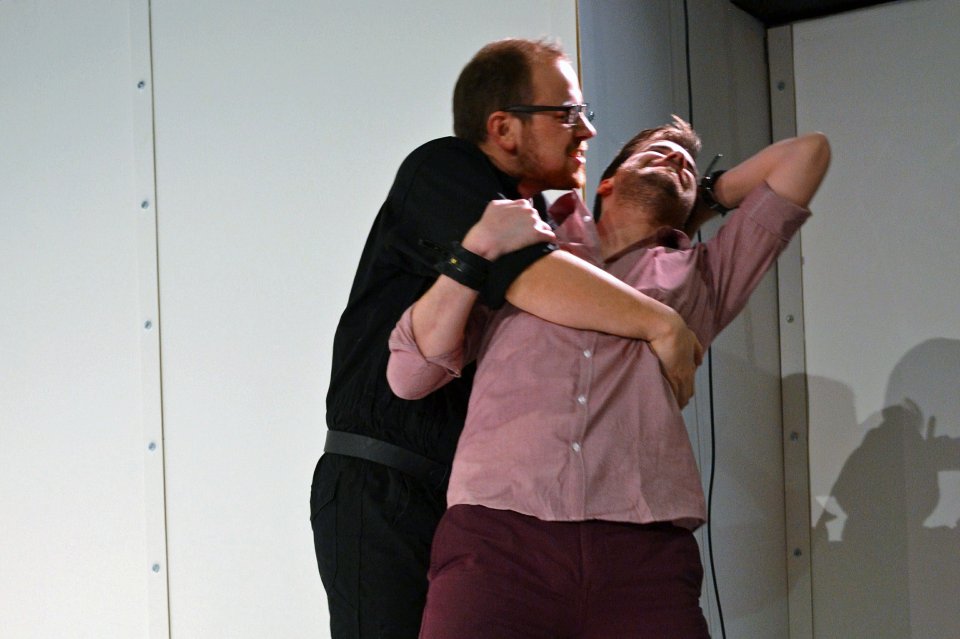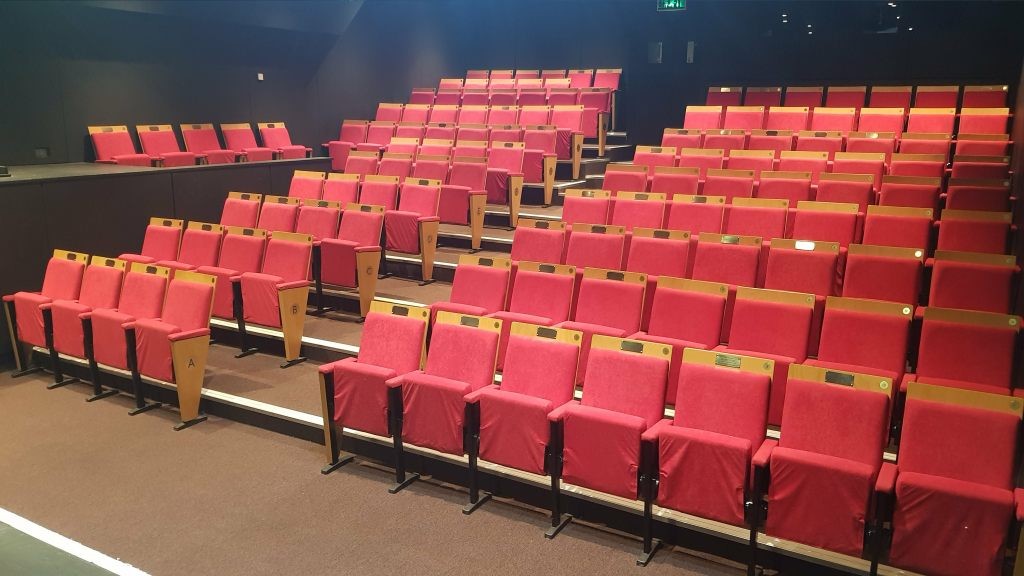- Theatre: Accidental Death of An Anarchist
- Theatre: Ein Komisches Talent
- Theatre: Gaslight®
- Theatre: Hansard
- Theatre: Home, I'm Darling
- Theatre: How to Succeed in Business...
- Theatre: I Love You, You're Perfect, Now Change
- Theatre: The Cat's Meow
- Theatre: The Crucible
- Theatre: The Duchess of Malfi
- Theatre: The Glad Game
- Theatre: The Last Noel
- Theatre: The Revlon Girl
- Theatre: Things I Know To Be True
- Theatre: Uncle Vanya
- Auditions: Audition for Youth Theatre
- Auditions: Audition for The Cat's Meow
- Auditions: Audition for Things I Know To Be True
- Auditions: Audition for The Glad Game
- Auditions: Audition For Uncle Vanya
- Auditions: Audition for Hansard
- Auditions: Audition for The Duchess of Malfi
- Auditions: Audition for Accidental Death of An Anarchist
- Auditions: Audition for How To Succeed In Business...
- Lunchtime Theatre: Borne out with whalebone
- Lunchtime Theatre: Animating the Inanimate
- Lunchtime Theatre: Discussion of a local production
- Lunchtime Theatre: Lunchtime Christmas
- Lunchtime Theatre: From the theatres to the stars
- Lunchtime Theatre: Lunchtime Theatre
- Lunchtime Theatre: Lunchtime Theatre
- Lunchtime Theatre: Lunchtime Theatre
- Lunchtime Theatre: Lunchtime Theatre
- Lunchtime Theatre: Lunchtime Theatre
- Lunchtime Theatre: Lunchtime Theatre
- Open Evenings: Open Day
- Open Evenings: Open Day
- Socials: Christmas Party
- Socials: Murder Mystery
- Socials: Quiz Night
- News: LMT at The Fringe!
- News: NANDA Awards 2025
- News: Youth Theatre Shines at NANDA Youth Fest...
- News: 2025/26 Season
- News: Under the Limelight: Backstage at the Vo...
- News: Plea for century-old theatre after drop ...
- News: 100-year-old Nottingham theatre ... laun...
- News: Lydia Marchant Came to Visit
- News: NANDA Awards 2024
- News: Discount Car Parking Offer
- News: 2024/25 Season
- News: Emmy win for our patron Matthew Macfadye...
- News: Golden Globe win for our patron Matthew ...
- News: Discount Food Offer
- News: NANDA Awards 2023
- News: 2023/24 Season
- News: Discount Car Parking Offer
- News: Lace Market Youth Theatre on the town...
- News: NANDA Awards 2022
- News: The Queen’s Award for Voluntary Service
- News: 2022/23 Season
- News: Discount Ticket Offer
- News: Covid Precautions
- News: 2021/22 Season
- News: A Virtual Vanya
- News: Nottingham Playhouse Home Grown Bursary
- News: NANDA Awards 2020
- News: Coronavirus (COVID-19): Season Cancellat...
- News: 2020/21 Season
- News: Coronavirus (COVID-19): Season Postponem...
- News: Sad and Amazingly Funny
- News: Absurd but relevant
- News: Where Are They Now?
- News: Foyer Refurbishment
- News: NANDA Awards 2019
- News: Youth Theatre win at NANDA!
- News: Hannah and Hanna on tour
- News: 2019/20 Season
- News: Adam Penford Visit
- News: The Big Wardrobe Move - Part 1
- News: Lace Market Theatre On Tour
- News: Henry, 14, shows the desire to step in a...
- News: New Wardrobe Premises
- News: Auditorium Refurbishment 2018
- News: NANDA Awards 2018
- News: Auditorium Refurbishment
- News: Remember when women were seen as 'little...
- News: Nanda Youth Festival
- News: 2018/19 Season
- News: World War II play loved by Churchill...
- News: Modern take on Charles Dickens' horror s...
- News: Oscar Wilde's An Ideal Husband at the La...
- News: Shocking true story of last woman to be ...
- News: Alan Bennett classic The History Boys to...
- News: Pride and Prejudice at the Playhouse?
- News: Launch of New Bar
- News: Is Guys and Dolls the best ever Musical?
- News: Success at NANDA
- News: LMT to Host World Premiere of New Englis...
- News: 20th Century masterpiece...
- News: 2017/18 Season
- News: Terry Pratchett's Carpe Jugulum to be pe...
- News: Comedy classic The Ladykillers will be s...
- News: West End hit that became Meryl Streep fi...
- News: Nottingham theatre kicks off 2017 with m...
- News: An alternative to panto...
- News: The Brontë sisters were chick-lit pionee...
- News: The Weirdest Title of Any Show You'll Se...
- News: Telling Tales...
- News: Love & Death
- News: Exhibition in the Studio
- News: Latest Sound Upgrades
- News: Success at NANDA
- News: Success at NANDA Youth Festival
- News: Steve Parry: A Tribute
- News: Lace Market Theatre on Tour 2016
- News: James Dean naked and 'lots of pretty lad...
- News: 2016/17 Season
- News: 2000 Facebook Likes!
- News: Art Exhibition During "Beautiful Th...
- News: Noel Coward comedy is Lace Market Theatr...
- News: Art Exhibition During "Present Laug...
- News: Discount Food Offer
- News: Art Exhibition During "The Pitmen P...
- News: New Roof!
- News: In August the Lace Market Theatre Goes D...
- News: Good Deeds Notts: A stroke of luck as Jo...
- News: Happy Jack: On Tour
- News: Success at NANDA!
- News: Nudity Features in Alan Bennett-style Co...
- News: Success at the NANDA Youth Festival
- News: Art Exhibition During "Dead Ringer&...
- News: Poltical Comedy Play is Anecdote to Gene...
- News: 2015/16 Season
- News: Bertolt Brecht Classic at Lace Market Th...
- News: Theatre preview: Bedroom Farce at Lace M...
- News: Lace Market Theatre stages the tale of a...
- News: Lace Market Theatre's One Act Play will ...
- News: It's a White Christmas at Lace Market Th...
- News: Art Exhibition During White Christmas
- News: Donation to Nottinghamshire NUM Ex and R...
- News: Lace Market Theatre tackles John Godber ...
- News: Darkly funny play at Lace Market Theatre...
- News: Lace Market Theatre commemorates WWI wit...
- News: The World of Professional Theatre has Re...
- News: Private Peaceful Collection
- News: Discount Food Offer
- News: Possibly the best set ever!!! The back s...
- News: LMT's comic, contemporary vision of rura...
- News: The horror of WW1 told in Lace Market Th...
- News: Success at the NANDA Youth Festival 2014
- News: NANDA Youth Festival
- News: VisitEngland Tourism Superstar Awards 20...
- News: 1000 Facebook Likes!
- News: The Return of Open Mic Night
- News: Art Exhibition by Neil Duckmanton
- News: Online Booking Problems?
- News: White Christmas Early Bird Offer
- News: New Website!
- News: Anne Boleyn Opens to Rave Reviews
- News: Nottingham Post interview Gordon parsons
- News: Murder Mystery Night is Big Success
- News: Nottingham Post interview Graeme Jenning...
- News: RSC Open Stages
- News: Nottingham Post Interviews Max Bromley
- News: Discount Food Offer
- News: Costume Commissioned by the Courtald Gal...
The Pillowman, a darkly funny play in which a writer of disturbing fairy tales is arrested following the gruesome discovery of two bodies, is running at the Lace Market Theatre all this week. Director Guy Evans explains why it is not for the squeamish...
IMAGINE, if you will, The Brothers Grimm trapped in George Orwell’s Nineteen-Eighty-Four.
That’s The Pillowman, Martin McDonagh’s darkly funny play set in a totalitarian state, where a writer of dark and disturbing fairy tales has been arrested following the gruesome discovery of two bodies in the town.
Like much of McDonagh’s writing, this play is a macabre mix of the sickeningly violent and the childishly stupid.
Not for the squeamish nor the easily shocked, the play nevertheless manages to reveal the everyday ordinariness, silliness, and tenderness of trying to cope with truly awful events and situations.
The play, whose subject matter is child murder and mutilation, is like a lot of McDonagh’s work; very funny. We laugh, but maybe we shouldn’t be.
Earlier in his career McDonagh wrote several fairy tales and his fascination for writing in the genre is evident in this play. Indeed the whole process of writing stories is a theme of the script: the invention of worlds made of words, the creation of characters and concoction of plots and the difficulties in writing fiction - avoiding contradictions, plot holes, boredom, lack of clarity, cliches, implausibility.
We are all story-tellers. We all tell stories to and about each other, from recounting what we saw yesterday, to reminiscing about times past, to telling fibs.
It is as if we need to tell stories to give form and meaning to the chaotic nature of real experiences; to share our thoughts and inner lives with others; to validate who we think we are.
Without stories we are forced to face the terrifying prospect of a world stripped bare of imagination and memory, meaning and form.
Similarly, each of the characters in the Pillowman tell stories, both fictitious and real (maybe). Telling stories allows them to define themselves differently to how they are usually seen by others. All the characters are, in some senses, revealed to be in the wrong job or scenario... apart from one.
They all would like something better but have settled for something adequate, and so are making it tolerable by finding a cause, a vocation, a purpose. All but one are trapped in a brutal adult world, so by inventing and telling stories it offers them a way of coping.
The dark heart of the play, where really terrible things can and do happen, is childhood. Dark forests, wicked parents, grisly deaths torture and mutilations: all the stuff of bedtime stories.
These stories maybe terrifying, true even, but in a world where imagination is outlawed, where truth is what the state says it is, where the only reality is what we can see, stories offer an escape, a refuge, a repository of humanity, a place beyond the reach of authority.
Without stories we are confronted with the horror of a blank page. We therefore want to fill it. I hope we have filled it with something very special, very scary, very funny and a little bit peculiar.
We have a wonderful cast of actors: Matthew Hunt, Ajay Stevenson, Richard Holmes and Adam Worton who play the central roles, and two other performers make very brief yet touching appearances in the play; Oana Ionescu and Valentin Ruscan.
The production has sought to reveal, in as powerful a way as possible, all their performances. Therefore my designer, Kareena Sims, has conjured up a design which speaks of two things: firstly, an empty space; a vast inhuman world of a totalitarian state: its uniformity, austerity, brutality, and machine-like emptiness; and secondly a space of make-believe and story-telling; of play and punishment; all potentials and all dangers; a shared room of two brothers; a shared space of victim and perpetrator; the smallness and simplicity of a child.
Read the full story here.












